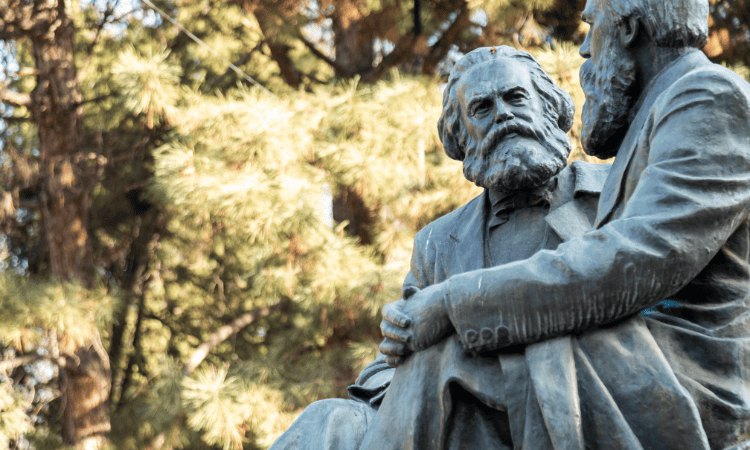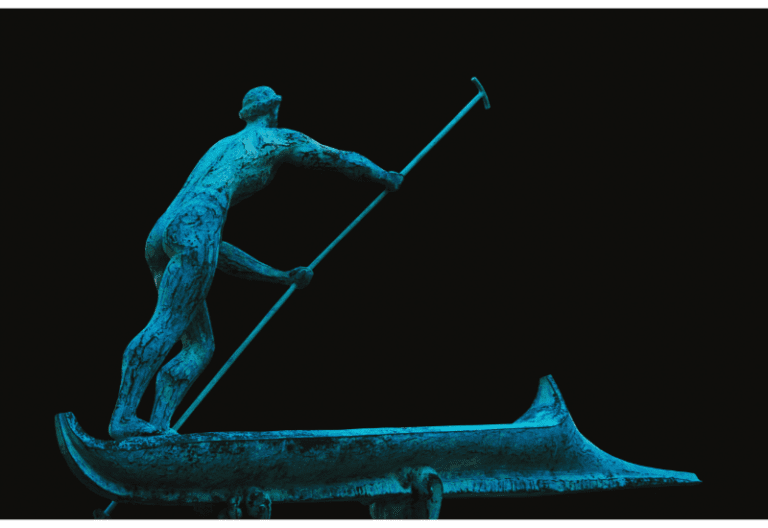Chuang Tzu reveals the secret of happiness
The following words by Chuang Tzu may sound a little confusing at first. Or a little harsh at second glance. But the ancient Chinese philosopher had put a lot of thought into it and the quote actually corresponds exactly to Daoist philosophy:
"Happiness is the absence of the pursuit of happiness."
Chuang Tzu
Isn't that a bit too absolute, you may be asking yourself.
As I have already indicated above: It could well sound like that. Especially if we look at this quote in isolation. But as so often, it's not a good idea to do that in philosophy.
Instead, we should put it in context. And the best way to do that is with another quote, I think. It explains quite well what Chuang Tzu (or Zhuangzi, as he is called in some translations) means:
"I cannot say whether what the world considers 'happiness' is happiness or not. I only know that when I look at how they seek to attain it, I see them driven headlong, grimly and obsessively into the general onslaught of the human herd, unable to stop themselves or change their direction. All the while they claim they are on the verge of achieving happiness."
Chuang Tzu
As you can see, Chuang Tzu's main point is that people are usually too spasmodic when it comes to the pursuit of happiness.
And this contradicts one of the most fundamental principles of Daoism: Wu-Wei.
If you're not familiar with it, Wu-Wei translates as "not forcing" and describes the art of effortless doing (if you want to learn more about it, be sure to read this article).
Therefore, this pursuit of happiness is opposed to the actual way to achieve it.
And you'll probably agree here.So what can you do instead?
The best way I have found (and you can find this approach in most philosophical schools) is to focus not so much on the outcome, but on the things you do.
Maybe the quote from Gandhi "The way is the goal" comes to your mind now (if you like the idea behind it, you should definitely read this article) because it's the perfect example of focusing on the present instead of the future - something most of us haven't really mastered.
And that is definitely a skill. I make sure that I focus on the moment a lot. I still have a long way to go, but it's getting better and better.
This is how you practice being in the moment:
- Accept when you find yourself thinking too far into the future (may happen - don't stress about it).
- Pay attention to your presence: Where are you? What is around you? What are you doing right now? How do you feel? The more you answer these questions, the more you will find yourself in the present.
Also, you automatically invite happiness into your life when you do certain tasks. Examples of such are:
- Take time for yourself- Try to stress as little as possible: especially about things that are out of your control.
- Meditate: gaining a calm mind is a crucial factor (start with small sessions if needed - even 2-3 minutes can have big benefits)
- Eat healthy more often: take steps that make you feel good- Get enough sleep: not too little, but not too much either
- Get moving: Our modern society is made for a sedentary lifestyle, but our bodies are not (a recurring alarm clock for light stretching is the best place to start)
It's not for nothing that you can find these points in Taoism. If you want to learn more about Taoism, you can find a lot of content on our blog. For example, this article about the best Taoism books for beginners.
This was the part of the article where we looked at the more practical aspect. The remaining part will take a closer look at Zhuangzi's view - after all, we do not only want to explain the usefulness of philosophical concepts here, but also shed light on why quotes came about.
Further background of this quote and Zhuangzi's
As mentioned above, it is not surprising to have such a quote from Zhuangzi, since he was strongly oriented towards Lao Tzu's teachings - by the way, he did not call himself a Daoist at that time (this designation was introduced much later).
Zhuangzi was much concerned with the mystical aspect of Daoism and greatly influenced it. One finds in Daoism the term "Zhenren". According to Zhuangzi, a Zhenren is a true or authentic human being and is connected with the belief in immortals, which he calls Xian. Xian are immortal beings in human form who have supernatural powers. A Zhenren experiences complete freedom of body and mind. Thus, he is not bound to the mundane. Instead, he travels through the universe, with which he experiences oneness. The zhenren is not subject to any norms and uses diversity without limits. Such a saint, therefore, has an extensive ability to transform, yet at the same time he is unified and unifying. This contrast is consciously made clear in Zhuangzi's teachings, but nevertheless the two sides are not mutually exclusive.
The saint is free from any kind of worries, whether political, moral or social. He does not seek efficacy and power (you can learn why Zhuangzi taught not to seek power here). And he has no internal or external conflicts.
Thus, the answer why we should not strive for happiness is quite clear: it would mean that we would block the way to becoming our highest selves.
I hope you enjoyed it and we could bring you a little bit closer to Daoism - a highly exciting, but in the West little understood philosophy.
Of course, the topic of happiness is huge and can't be covered in a small article (let alone achieve happiness just like that after reading it - at least probably not). Our entire blog is about living a happier life. Feel free to browse more articles!







